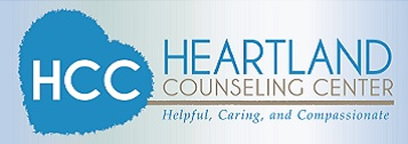 Often it happens out of the blue. Suddenly you feel dizzy and sick to your stomach. You find it hard to breathe. You may even believe that you’re having a heart attack. (In fact, many people experiencing a panic attack go to the ER, thinking that they are having a heart attack.)
Often it happens out of the blue. Suddenly you feel dizzy and sick to your stomach. You find it hard to breathe. You may even believe that you’re having a heart attack. (In fact, many people experiencing a panic attack go to the ER, thinking that they are having a heart attack.)
If you’re someone who has had a Panic Attack, you know how frightening they can be. Left untreated, panic attacks can lead to panic disorder and other problems. Panic attacks may even cause you to quit doing things you normally would for fear of having a panic attack in public.
Understanding Panic Attacks
For many people, a panic attack strikes without any warning. Often there is no clear reason for the attack.
However, for others, panic attacks could be repeated episodes, frequently triggered by a specific situation such as public speaking or crossing a bridge or by a feeling of being trapped or in danger.
Signs and symptoms of a Panic Attack
Most panic attacks start suddenly, reach their peak within 10 minutes, and end within 20-30 minutes. Rarely does a panic attack last longer than an hour.
If you have a panic attack, you may experience:
- Shortness of breath
- Hyperventilation
- Chest pain
- Shaking
- Choking feeling
- Feeling unreal or detached from your surroundings
- Sweating
- Nausea
- Feeling dizzy or faint
- Numbness or tingling sensations
- Hot or cold flashes
- Fear of dying, losing control, or going crazy
Causes of Panic Attacks
The exact causes of panic attacks are unclear. However panic attacks tend to run in families. They also sometimes coincide with major life transitions such as graduating from college, entering the workforce, getting married, having a baby, coping with the death of a loved one, divorce, and job loss.
Panic attacks can also be caused by medical and physical conditions, so it is important to discuss your panic attacks with your doctor to rule out any possible medical or physical problems as well.
How Counseling can help with Panic Attacks
Cognitive Behavior Therapy (CBT) is generally viewed as the most effective form of counseling for panic attacks. Cognitive Behavior Therapy helps you look at your fears in a more realistic light and helps you to change your thinking patterns and behaviors that can be contributing to your panic attacks.
In addition to using Cognitive Behavior Therapy, your counselor at Heartland Counseling Center will help you to:
- Understand any underlying causes of your panic attacks. We can help educate you on the symptoms of a panic attack and normalize your feelings so that you don’t feel like you’re going crazy. We will also work with you to try to identify anything that is triggering your panic attacks.
- Learn to control your breathing. We will teach you deep breathing skills to help you control your breathing when you begin to have a panic attack. Often other symptoms of a panic attack (feeling dizzy, feeling lightheaded, feeling a tightness in your chest) are a result of your difficulty breathing during the panic attack. If you can learn to control your breathing, you may not experience as intense of a panic attack in the future and you will be able to remain calmer in the first place.
- Learn other relaxation techniques. We can work with you to help you make changes in your lifestyle and incorporate more relaxation time in your daily schedule. The more relaxed you are on a daily basis, the less likely you are to have panic attack.
What about medication for Panic Attacks?
Medication can be a temporary fix to reduce your symptoms of a panic attack. However, medication alone does not treat or resolve your panic attacks. In combination with counseling and lifestyle changes, medication can help, but you typically will not “get over” your panic attacks with medication alone.
If you have had a panic attack, Anxiety Counseling at Heartland Counseling Center can help you learn the triggers of your panic attacks and learn calming and relaxation skills so you won’t have to be held captive by your fear of having another one. Contact us today to get started.




